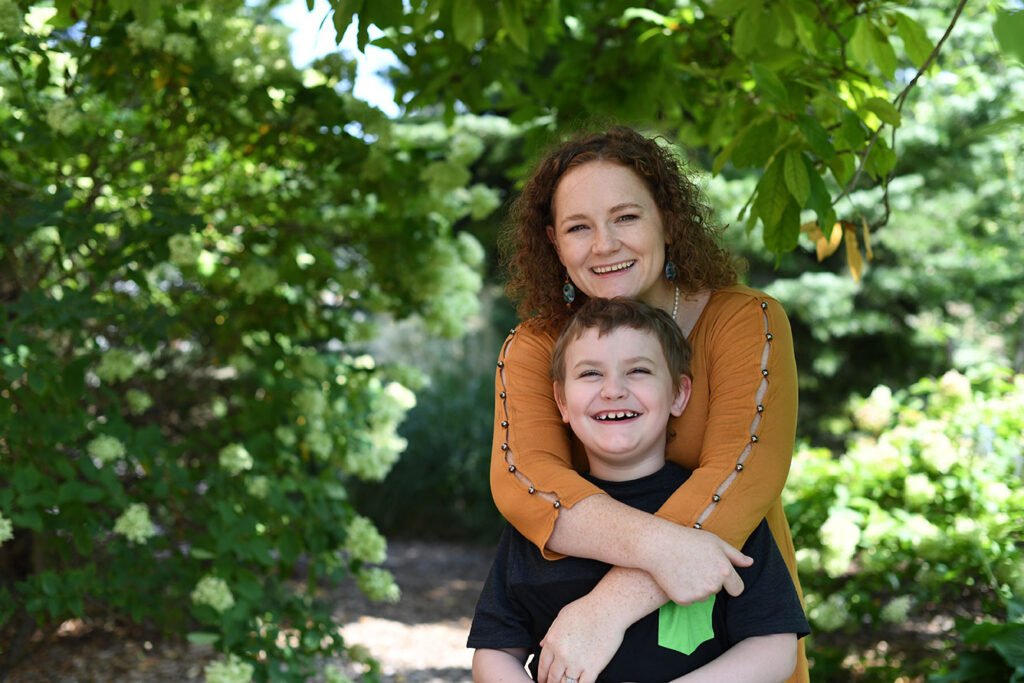Alexis and Jackson, living with ADH1

Alexis is a mother of two sons, and has been living with autosomal dominant hypocalcemia type 1 (ADH1), a rare, genetic form of hypoparathyroidism for over 25 years.
Alexis had her first grand mal seizure (characterized by a loss of consciousness and violent muscle contractions) when she was just six months old, which triggered a hospital visit and a diagnosis of hypoparathyroidism, a condition where your body produces abnormally low levels of parathyroid hormone. The cycle of hospital stays due to seizures characterized by violent muscle spasms and loss of consciousness lasted throughout her early and middle childhood.
The grand mal seizures Alexis experienced until she was eleven caused her to develop learning disabilities, and she met with a tutor every morning because of her desire to receive an education.
“I still did it even though there were days I couldn’t get out of bed. I craved that, wanting to be a kid. I was still hurting. But it wasn’t like, ‘I can’t move, I can’t do it. I just had to hold on to hope. I couldn’t let it go. I had to keep going,” Alexis said.
While hypoparathyroidism caused her to miss many of the activities common for teens, she pushed herself and became a cheerleader in high school.
At age fifteen, Alexis received the diagnosis of ADH1. “When they did the genetic testing, they told me I had one of the rarest [forms of hypoparathyroidism],” she said. “I told them my story. And the doctor pretty much looked at me and said, ‘I’m surprised you’re alive!’”
Despite being told by many of her doctors she would never be able to be a mother, Alexis and her husband have two young sons – Jackson and Joseph. Throughout her pregnancies, Alexis dealt with fears of her own mortality and of the risk that her child would inherit the genetic mutation that causes ADH1. Initially, the results came back negative, but additional testing revealed that Jackson had inherited this rare condition. Upon hearing the news, Alexis felt “broken.” She worried that her son would experience the same feelings of alienation, arduous medical regimens and frequent hospital stays that she did as a child.
Jackson is now eight years old. Fortunately, due to advancements in medicine, Jackson’s experience with this condition has been less difficult than his mother’s. Yet, while Jackson likes to run, play outside and keep up with his friends and younger brother, he fatigues quickly and experiences pain in his stomach and arms, even when he’s just watching his favorite shows. Jackson, like his mother, is resolved to keep going and play like any other child.
“I just lose energy very, very fast. I feel like I’m just gonna fall right over…sometimes [my] arms feel like they’re going to fall off,” said Jackson.
Today, Jackson’s mother, Alexis, lives in pain, but continues to be determined to live through it. She wants people to know that the consequences of ADH1 can be challenging, but there is always hope.
Alexis guides her son through his experience with ADH1 with compassion, empathy and faith in their combined strength to keep pushing forward. When asked if there was something Jackson wanted to tell people about his condition, he said this: “Why don’t we have a cure yet?”